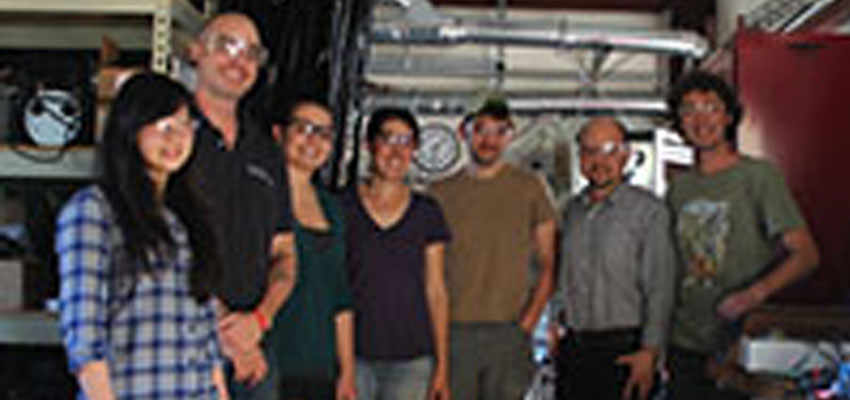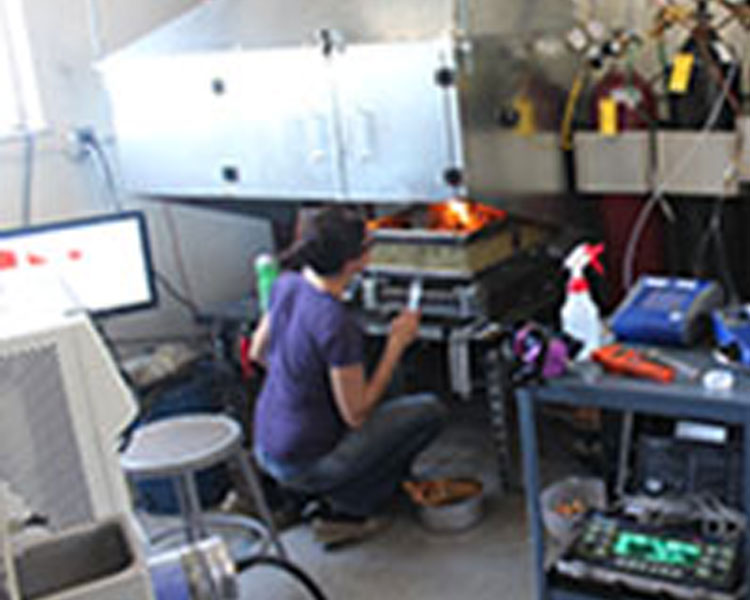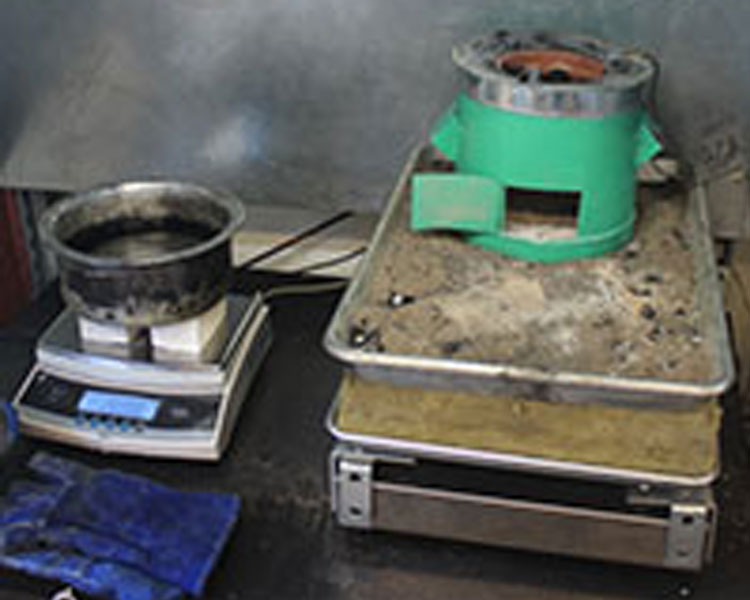
As many of you know, D-Lab has worked to refine, advocate for, and scale-up the production of charcoal briquettes made from agricultural and other organic residues (as opposed to conventional wood) for more than ten years. Despite the ongoing work at D-Lab through the Harvest Fuel Initiative and the great work on improved fuels and cook stoves by other researchers and technologists worldwide, we’re still left with a lot of tough questions that need answering. Are charcoal briquettes really an efficient and safe alternative to wood charcoal and firewood? Are improved cook stove technologies making significant improvements in emissions as well as fuel consumption? What effect does solid fuel use have on indoor and regional air quality? What about global climate change? Are there specific parts of the cooking process - such as the fuel ignition phase - that make large contributions to negative environmental and health impacts?
This June, the HFI technical team packed our bags with samples of wood charcoal and some green briquettes from HFI enterprise partners Green Bio Energy in Uganda and ARTI-Energy in Tanzania. With these samples and our collection of portable emissions measurement instruments, we traveled to Berkeley, California to join members of Prof. Ashok Gadgil’s Berkeley-Darfur Stove team and MIT’s Kroll Lab to perform one of the most comprehensive evaluations of cooking fuels and cook stoves ever performed! Nestled within Lawrence Berkeley National Lab in the hills above the Berkeley campus was the small, metal outbuilding that houses the cook stove lab. The lab is outfitted with an impressive array of scientific equipment that Dr. Gadgil’s team is employing to develop efficient, clean wood-burning cook stoves. We added D-Lab’s emissions equipment and the Kroll-Lab’s soot particle-aerosol mass spectrometer - a half-million dollar instrument that measures emissions particle size distribution and concentration, then blasts the sample with a high-powered laser, vaporizing them and characterizing the products in a high-integrity mass spectrometer. With all this equipment together, the lab felt like the CERN of cook stoves!
For more than two weeks we put in long days performing test after test. We evaluated various cooking fuels such as green briquettes from our HFI partners, wood-derived charcoal, and firewood; cook stoves including insulated jikos from East Africa and several versions of the Berkeley-Darfur Stove; and a variety of fuel ignition methods. For a researcher in a field where funding can be hard to come by and collaboration is so important, having access to these combined resources was a fantastic experience - a big thanks to Professor Gadgil and his group for hosting the study.
In the coming months, the HFI team will be back in our lab to sift through data and better understand the impacts of current and improved stoves and alternative fuels. We will look at the potential economic, environmental, and health benefits that our current technologies provide, and determine what characteristics of our fuels, stoves and use methods that we should prioritize for improvement moving forward.
We look forward to supplying our HFI partners with detailed information on their briquette fuels, particularly in the areas most important to consumers such as fuel consumption, ignition time, and emissions of particles and carbon monoxide. We’ll be using the testing done at Berkeley to understand how different feedstocks and residues (i.e. charcoal dust, maize cobs, rice husks) and production methods affect the performance of carbonized briquette fuels. Finally, the data will enable us to develop a comprehensive technical specification providing quality requirements and best practice recommendations for producers of charcoal briquettes – a standard which we hope will build capacity and catalyze growth in this new industry.



